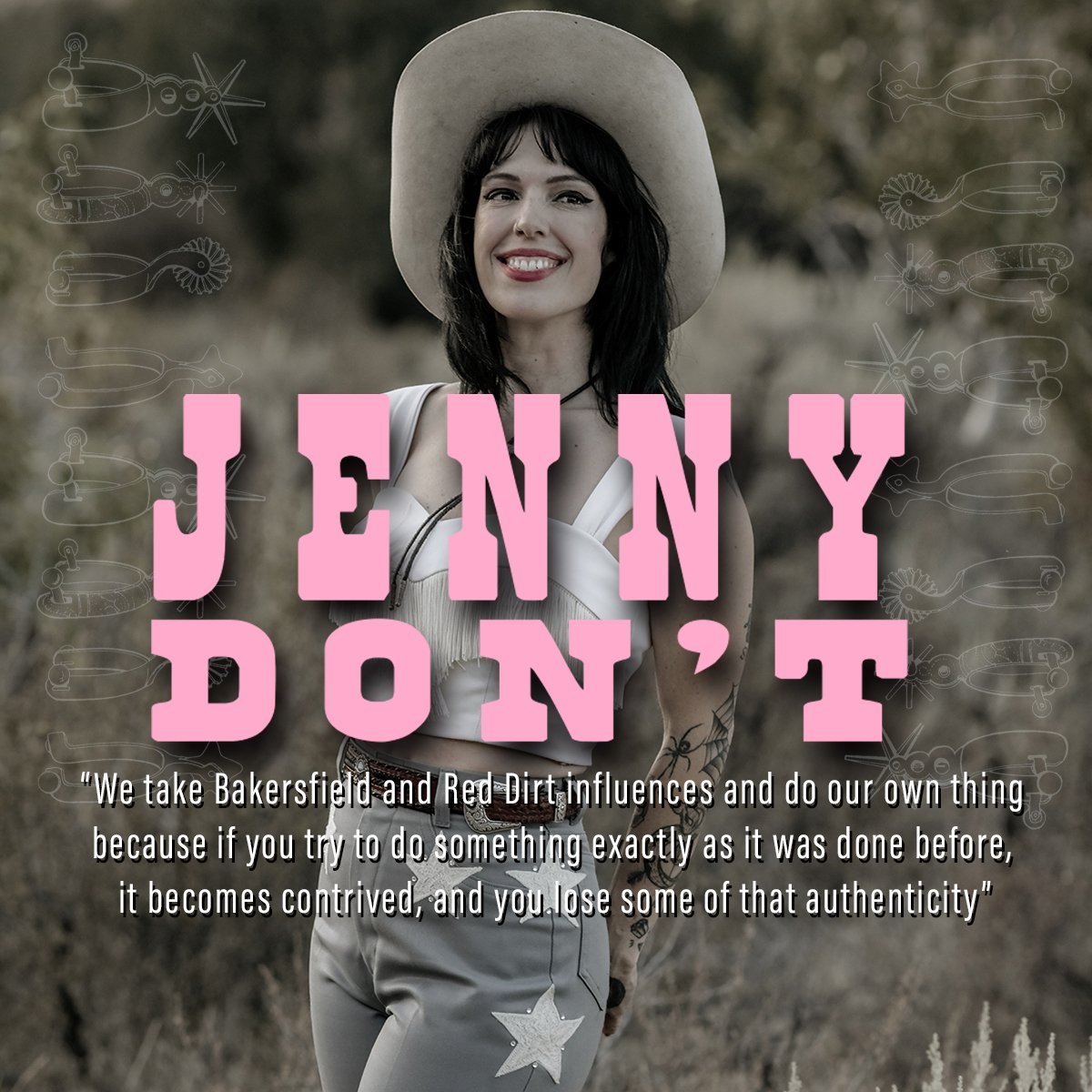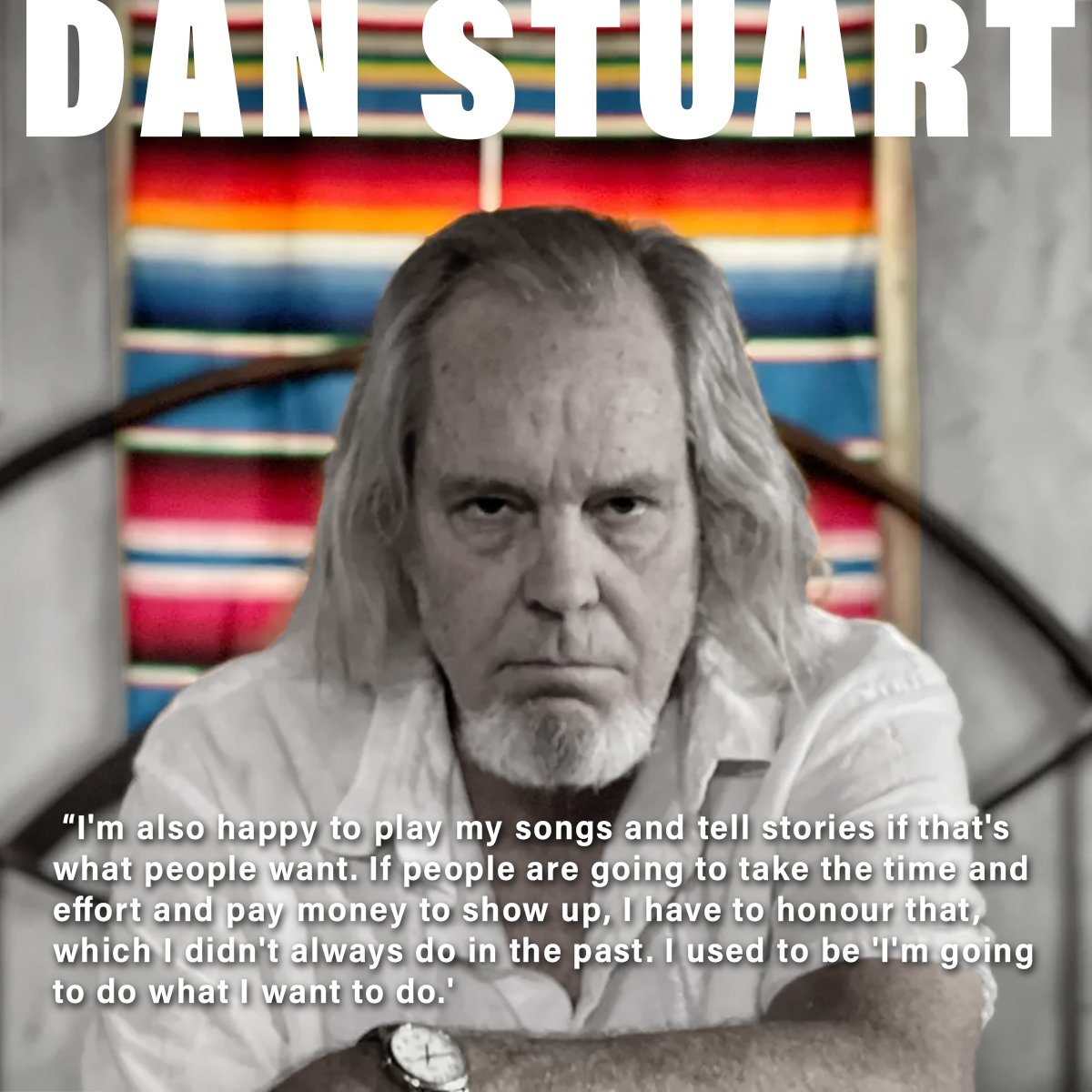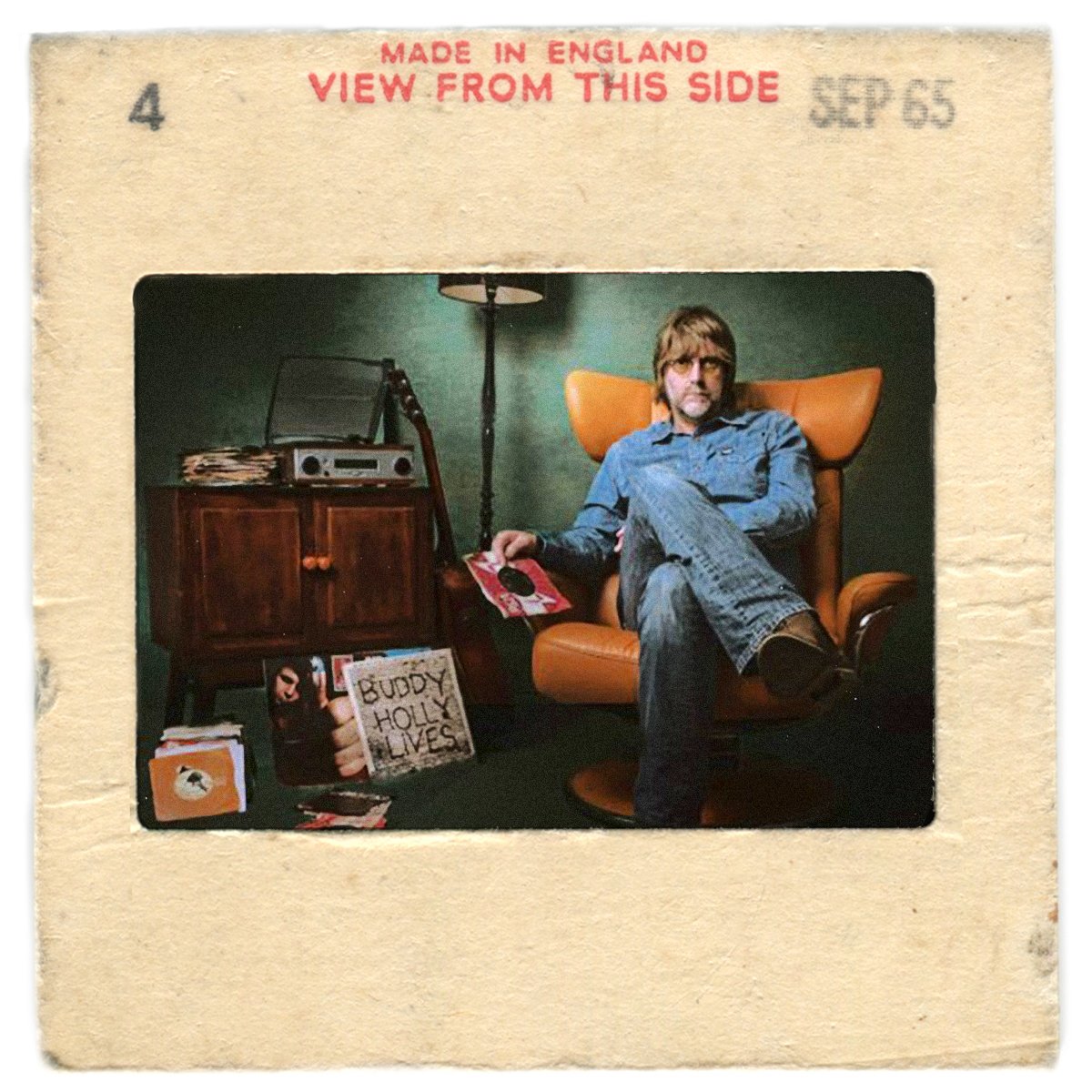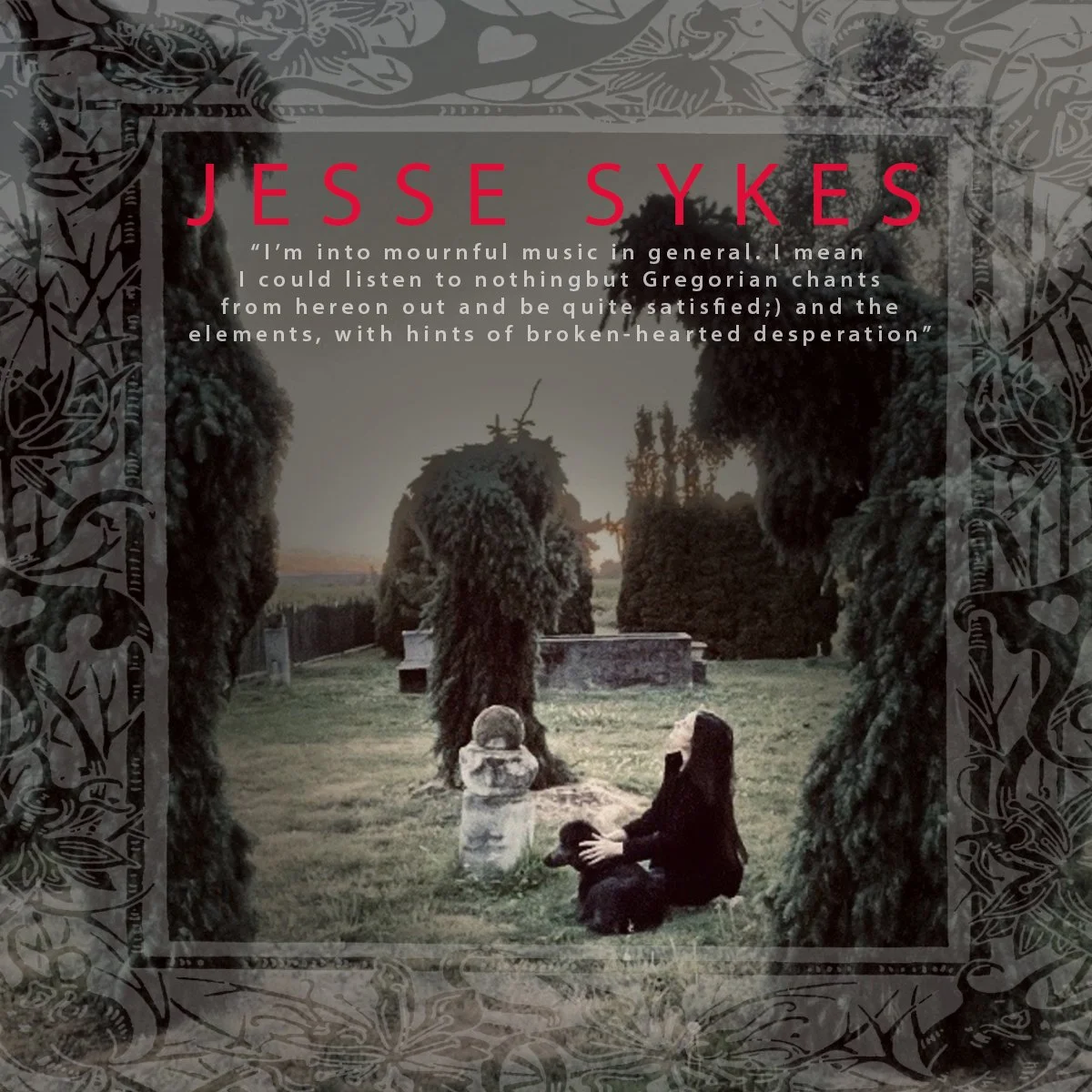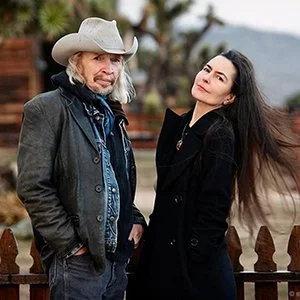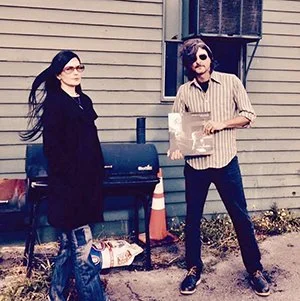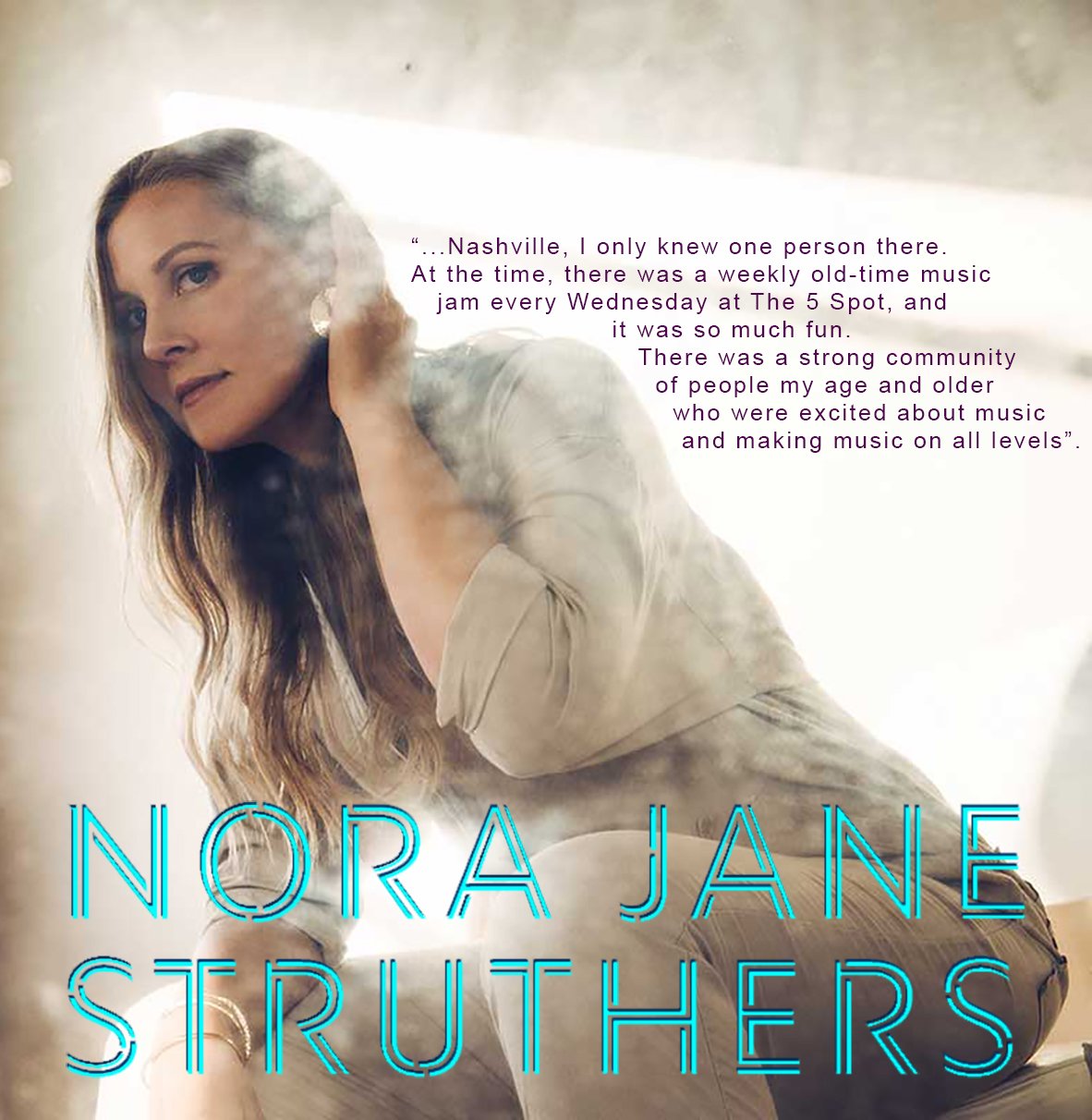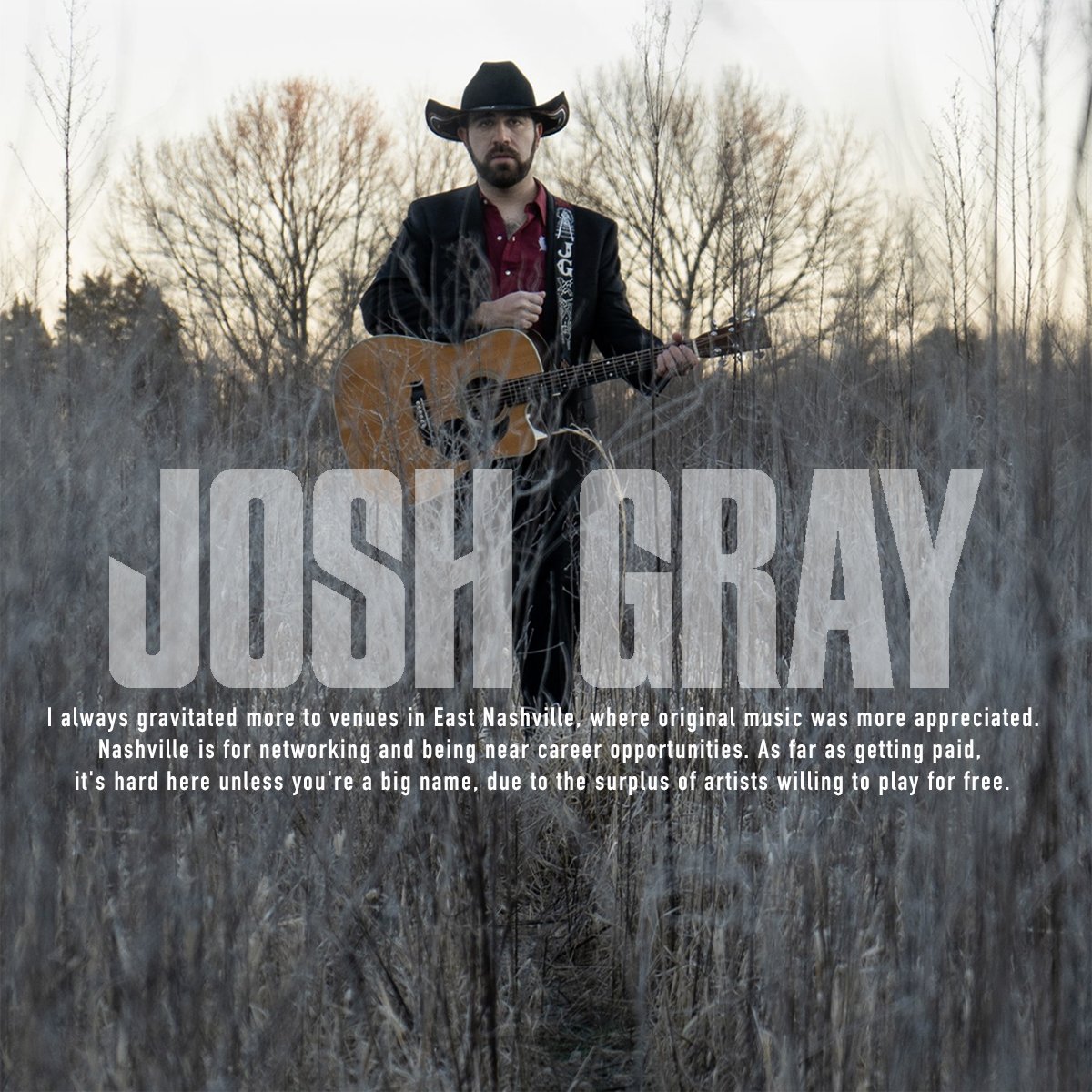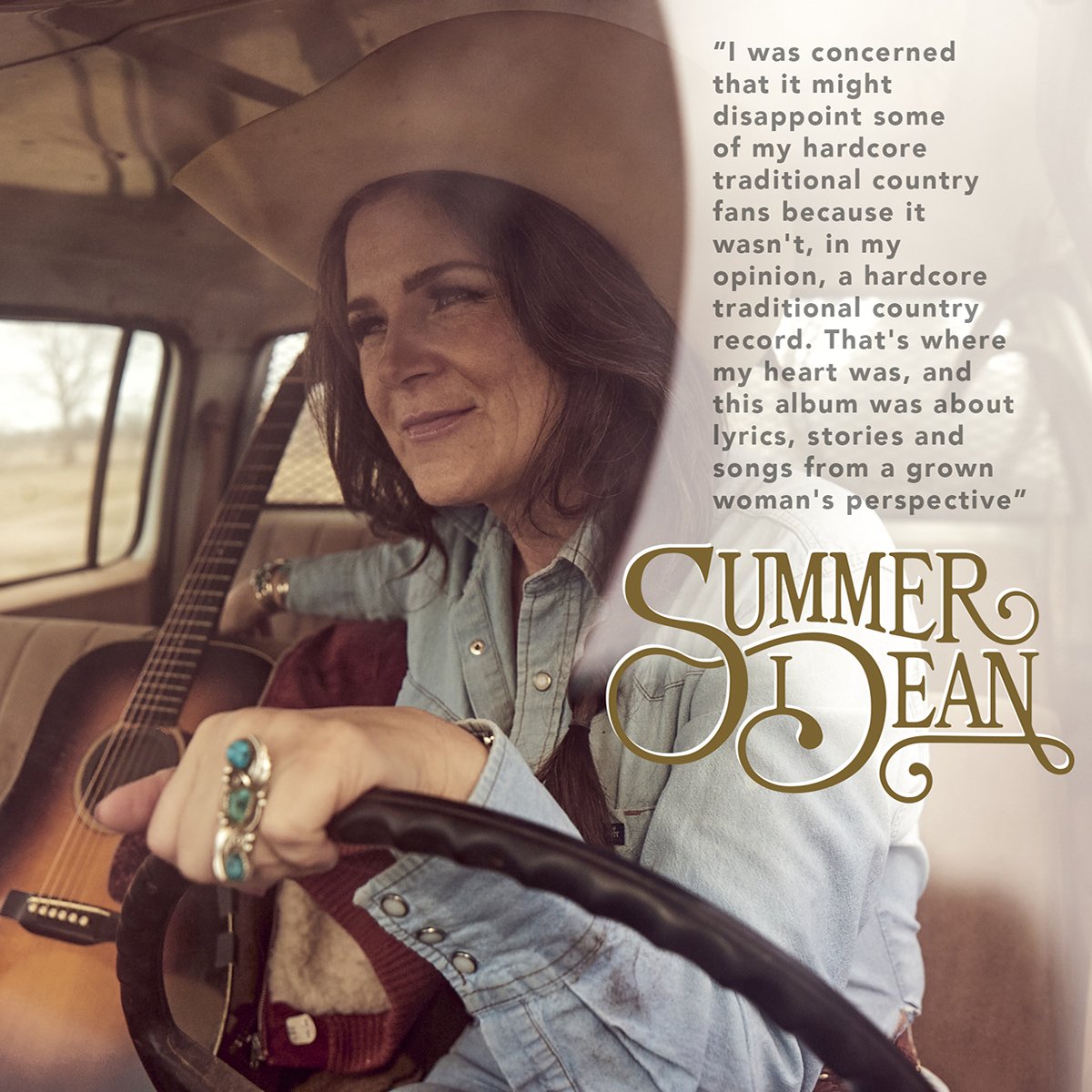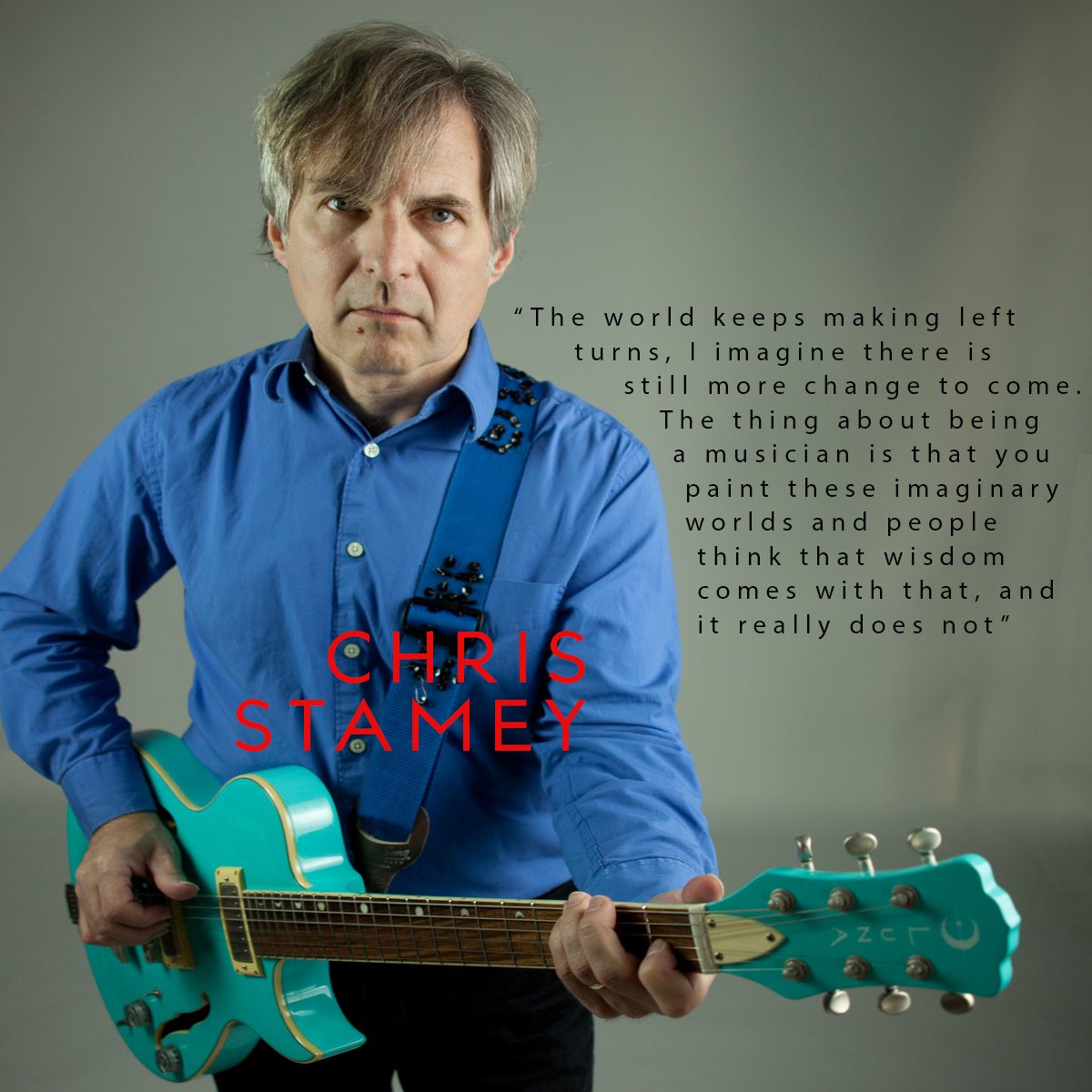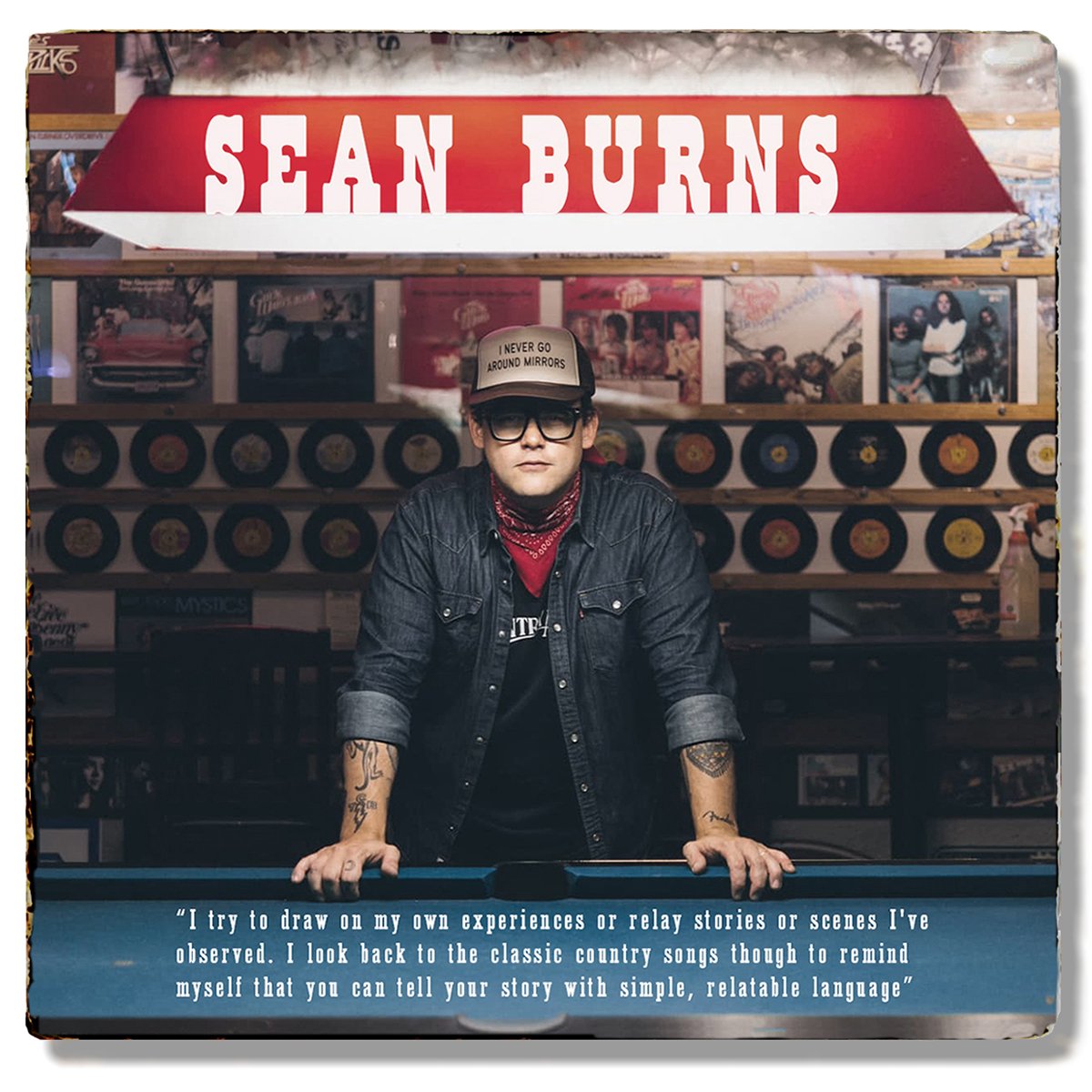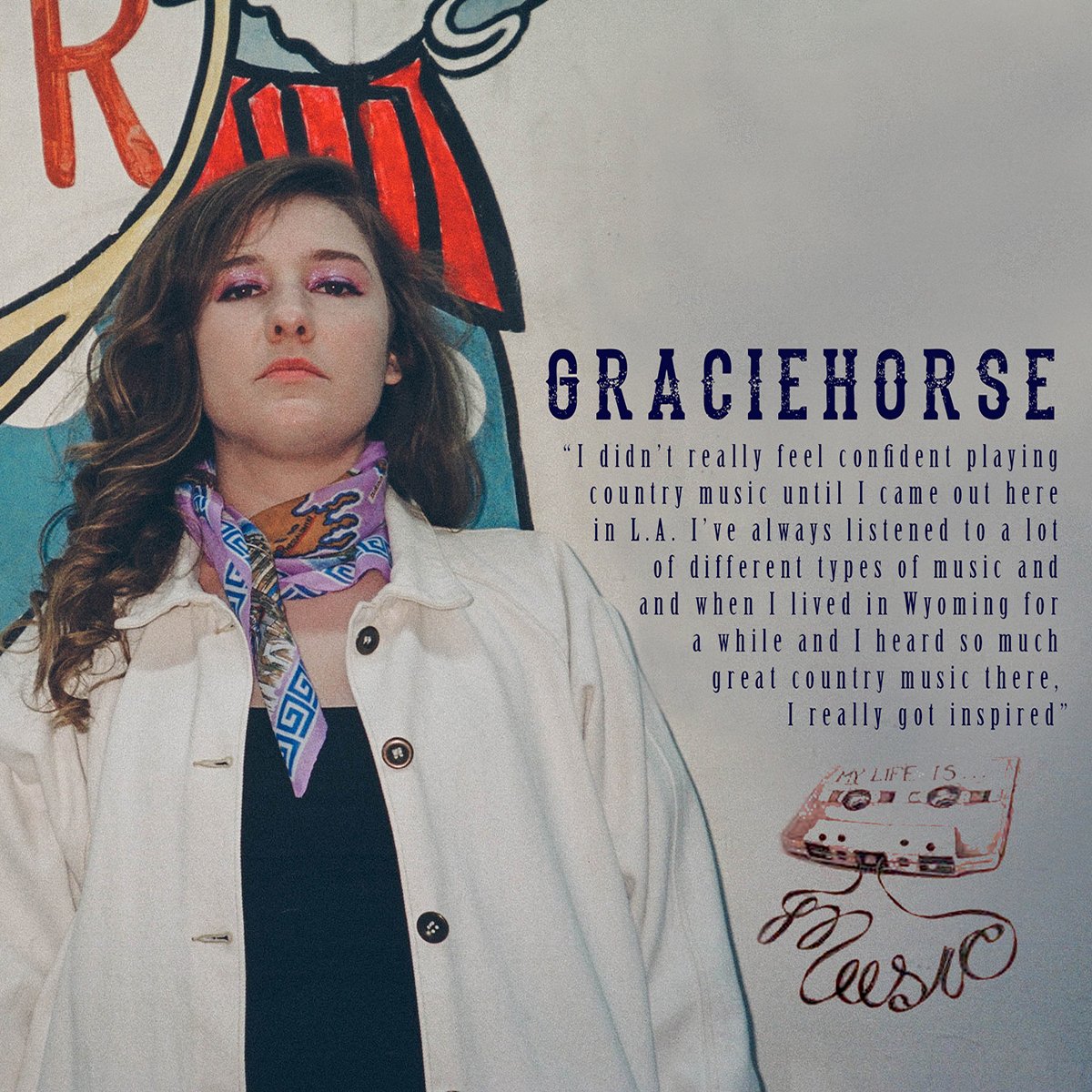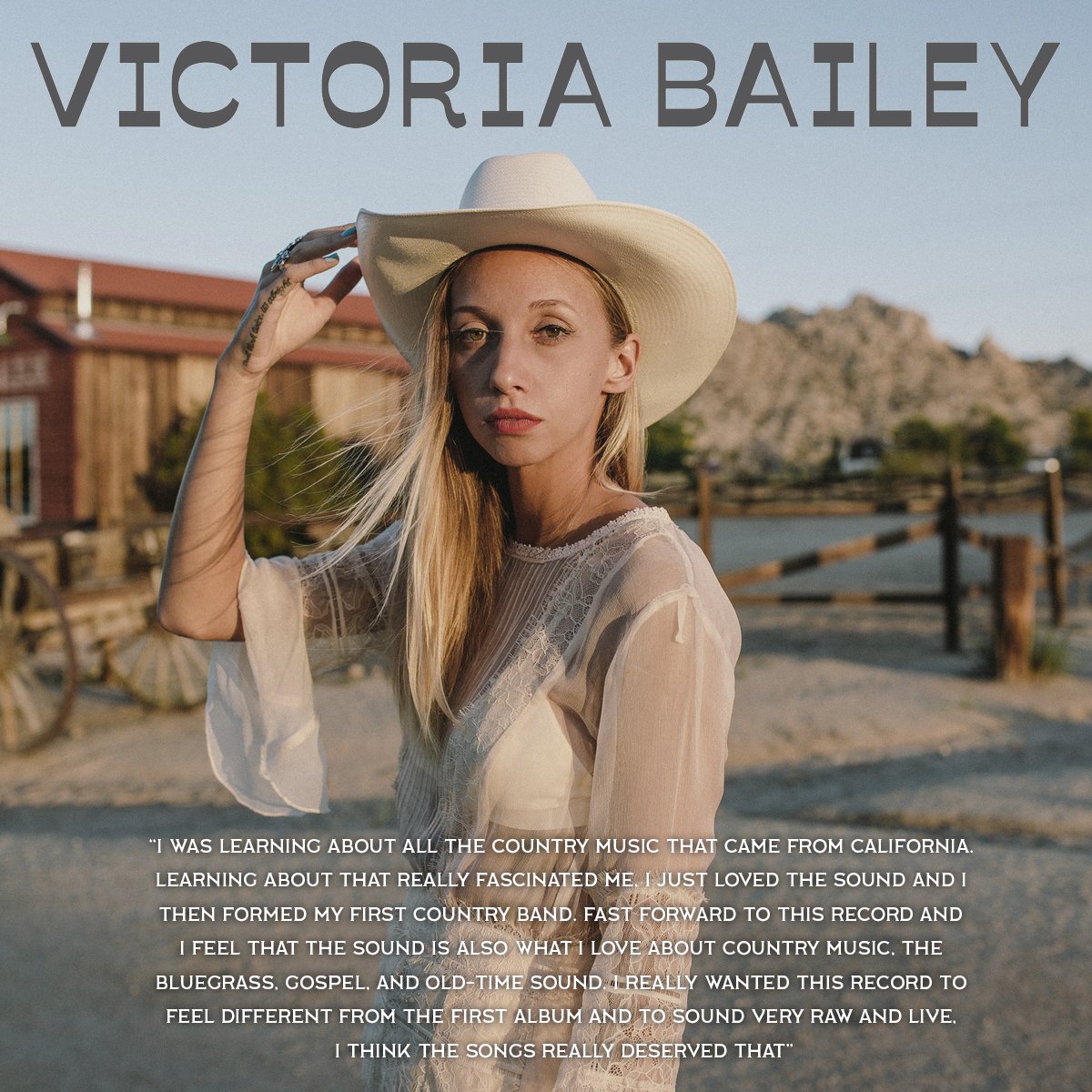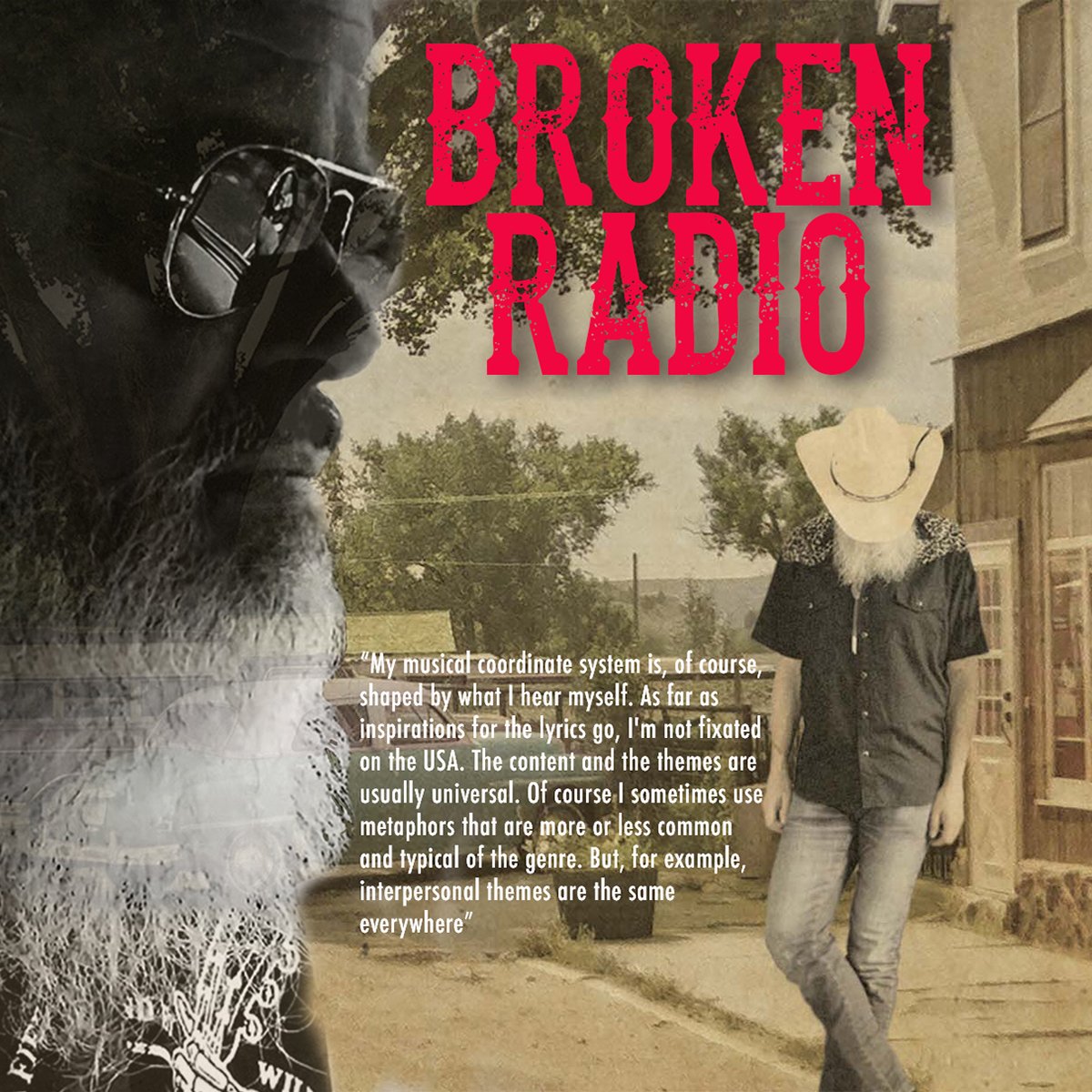Winners of The Ameripolitan Award as Outlaw group of the year in 2023 was well-earned recognition for a decade of touring and recording for Portland, Oregon band Jenny Don’t and The Spurs. Ignoring industry trends, the band has remained faithful to the vision of creating its brand of high-energy country/punk crossover. Lonesome Highway chatted with Jenny before the band headed off on their customary hectic touring schedule across The States and Europe, where we will get the opportunity to see them perform live at The Static Roots Festival in Oberhausen, Germany, in July.
Where did your devotion to Western style and music come from?
My mom was a rodeo queen in Wyoming in the '70s, and I was the only one among my siblings who had any interest in riding horses in that rodeo style. I did that during my youth, and my mom would always listen to Patsy Cline, Loretta Lynn and Hank Williams, so I grew up listening to a lot of that stuff. That was ingrained in me and my 'go-to' for my songwriting.
Like many others, your entry into Western music came via punk bands.
Yes, I had a punk band called Don't in my late teens and early twenties. It was fun to get some aggression out there and have fun, but at the same time, punk was a bit limiting as to certain places where you could play, and I wanted to open up so that we could play anywhere. We have done that with Jenny Don’t and The Spurs, where we can play a louder, faster set in a punk or grunge setting and also play a winery or brewery and play a different set while still sounding cohesive and not like two different bands.
Did some of your material come from those early days?
I was playing a lot of the songs that became Jenny Don't and The Spurs songs back then. Sam Henry, who died in 2022, was the drummer in the Portland punk band The Wipers at that time and would sometimes play guitar with me. We used to joke, 'Come and see the two worst guitar players in Portland play a show on a patio on Saturday night just for fun.' But we eventually decided to take it a bit more seriously. Kelly (Halliburton) was playing drums with the married couple Fred and Toody Cole, and he and I wanted to do a project together. We decided to do some of the songs I'd been playing on those patio shows. Freddie and Toody asked us to open shows for them, and it took off from there. Now, it's our primary project and has surpassed everything else.
You have been described as rebellious and independent. A fair depiction?
Even within the Western scene, it is rebellious because a lot of people expect you to play traditionally. What we do is our interpretation of that, and we're not trying to recreate something that's already there. We take Bakersfield and Red Dirt influences and do our own thing because if you try to do something exactly as it was done before, it becomes contrived, and you lose some of that authenticity.
How have you evolved over the past decade in terms of performing and recording?
We've hung in more on our own sound with each album and got inspiration from other artists. With CALL OF THE ROAD (2017) and FIRE ON THE RIDGE (2021), we established that we wanted to play these songs hyper-speed with lots of energy. Our latest album, BROKEN HEARTED BLUE, was recorded with Colin Hegna from the Portland band Federale, and he also plays with Brian Jonestown Massacre. He did a cool job because everybody had their own space within the songs. He captured my vocals, allowing me not to have to project as much as before; some of the earlier stuff's vocals have that punk rock attitude, but with this one, we've brought it down a bit and played around with influences like Lee Hazlewood, who has such a way of telling a story. His vocal tenor is so low, yet he really paints a picture with his songs. We also played around a lot more with reverb on this album and having open spaces within the songs. In previous albums, I would present the songs to Kelly and mainly have everything done, whereas this time, we collaborated a lot more in the song-building process. I mainly did the music and the melodies, and Kelly helped with the lyrics. This album is more mature. We've put a big effort into it. It's a good mixture of cowpunk, garage and western, and we're proud of it. It's also the first album we've had Buddy Weeks play drums on, which is good because it's something that he contributed to before the touring season starts.
Had you worked with Colin Hegna before?
We had played shows with Colin before but never had him produce for us. We really enjoyed the experience, and I believe we will work with him on our next recording project. He had great input on the guitars we should try and use and spent a lot of time on the rhythm guitar; on previous recordings, I just did my rhythm guitar parts with the drums, and they were done. Colin also spent time getting me to build on acoustic and having multiple guitars on the tracks, which I had yet to do before. We did a mix of recording live and building from that. Kelly also likes doing overdubs for his bass because he's got so many notes. Recording solely live by the end of the session, everybody is spent, and it starts sounding mechanical. For us, everybody gets their takes done in three or four tries.
Had you road tested the material for the album on your last tour?
We usually play the songs live before we go into the studio to see how the crowd feels about them. The first few times is like a blind date for everyone. It's a good way to let things sink in
Buddy Weeks has replaced Sam Henry, who passed away in 2022 shortly after being on tour with you. That must have been devastating for you all.
It was awful and something that none of us had expected. Sam hadn't been feeling well, went to the doctor to be told he had terminal cancer. Kelly, Christopher and I didn't know whether we wanted to put the band to bed and do spin-offs after Sam died, but we also thought that it would be a disservice to all the work Sam had put into the band and didn't want all of that to be in vain. I had been playing with Sam since 2008 and had no other drummers. We told Buddy that we had a tour lined up in Europe and The States and was he prepared to jump in the van with us and essentially give a year of his life up. It has been great; he is a really good fit. We would never ask anyone to play exactly like Sam, but Buddy plays with a similar style; he also plays with a traditional grip and has his own flair in the way he holds tempos and his own embellishments. He's also fun to hang out with outside the shows; you're on stage for a few hours at a time, but you're together for the rest of the day.
The title track from the album, Broken Hearted Blue reflects those sacrifices and missed opportunities that touring presents.
Yes, it deals with being on the road and not having time for romance, and someone catches your eye; that can't be reflective of me, of course. But then you're off to the next town.
Your touring schedule is hectic, to say the least.
We played a lot of shows last year at home and abroad. We played a bunch of shows in Scandinavia and Germany, and we also played in the Philippines, Malaysia, and Indonesia. My husband and bass player Kelly had toured there with some of his earlier punk bands and had made connections. He reached out to them as we were going to be in Australia, and it's cheaper to fly to those places from Australia than from the States. It worked out really well. We’re just about to head off touring the States and Europe again in a few weeks.
Can you make it stack up financially touring with a full band?
Kelly and I are a good team. He is good at booking and accounting, and I'll do the visually creative side of things. We've got to the stage where no one is out-of-pocket touring; it's a lot to ask guys to commit so much time because you're limiting yourself and sacrificing so much. So, when we go to Europe, we do a lot of shows to cover the costs.
How does touring as a married couple pan out?
It’s good. We are together 24/7, so many couples we know found it difficult when Covid happened, but it wasn't any different for us. It strengthens our relationship; we will have been together for fifteen years this summer.
You have created a brand by pairing your outlaw musical sensibilities while embracing the genre's fashion side. How important is that to you?
We love to dress up and wear Nudie-style suits, and we’ve noticed at our shows that more people are dressing up that come to them. I make my own outfits from scratch, buy the fabric from the stores and find the patches that I want to use. I have an old-school hand crank machine, which I use. For Kelly's suits, I deconstruct old suits, take them apart and put them together again. I'm always trying to cram this together between tours because we only have so much time, but I like to have a new outfit for each tour. Some of the outfits get thrashed on tour, so I can't justify spending a huge amount to get outfits made for me.
What designers particularly inspire you?
Manuel, who worked with Nudie, for one. I have a book called How the West Was Worn, which has visuals of old suits, who made them, and their inspirations. Ruth Franklyn has a self-learn embroidery and chain stitching video that I've studied. There's actually a huge embroidery and chain stitching community, and I've met a lot of others who also do it; it's another fun, creative outlet.
The outlaw genre has been supported and furthered by Dale Watson and Celine Lee’s annual Ameripolitan Music Award festival that have given artists like yourselves deserved exposure.
Outlaw is something that you can't totally characterise, and I appreciate Dale Watson doing Ameripolitan. He was facing the same thing where the industry wanted the mainstream country to sound a certain way. There is a huge underground country music scene that gets overlooked, so Dale and Celine putting that together every year is cool. They are also bringing together artists from all around the world and not just being hyper-focused on what is happening in the U.S.
Interview by Declan Culliton. Photograph by Jen Borst

